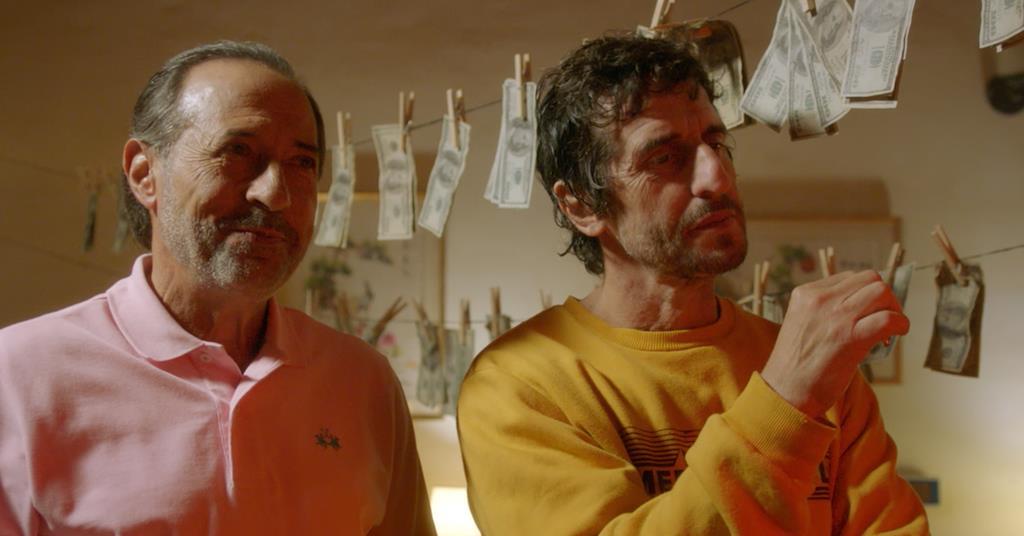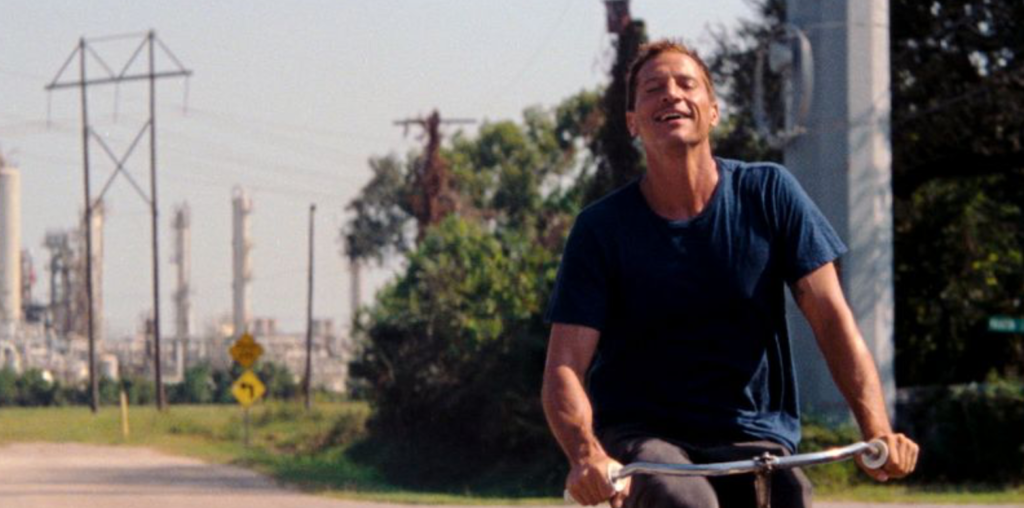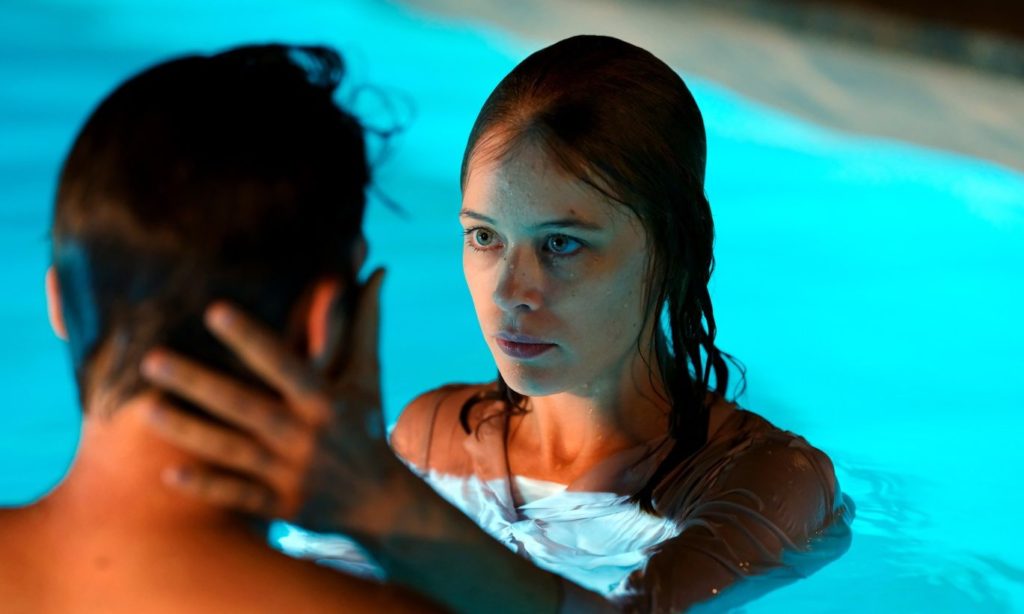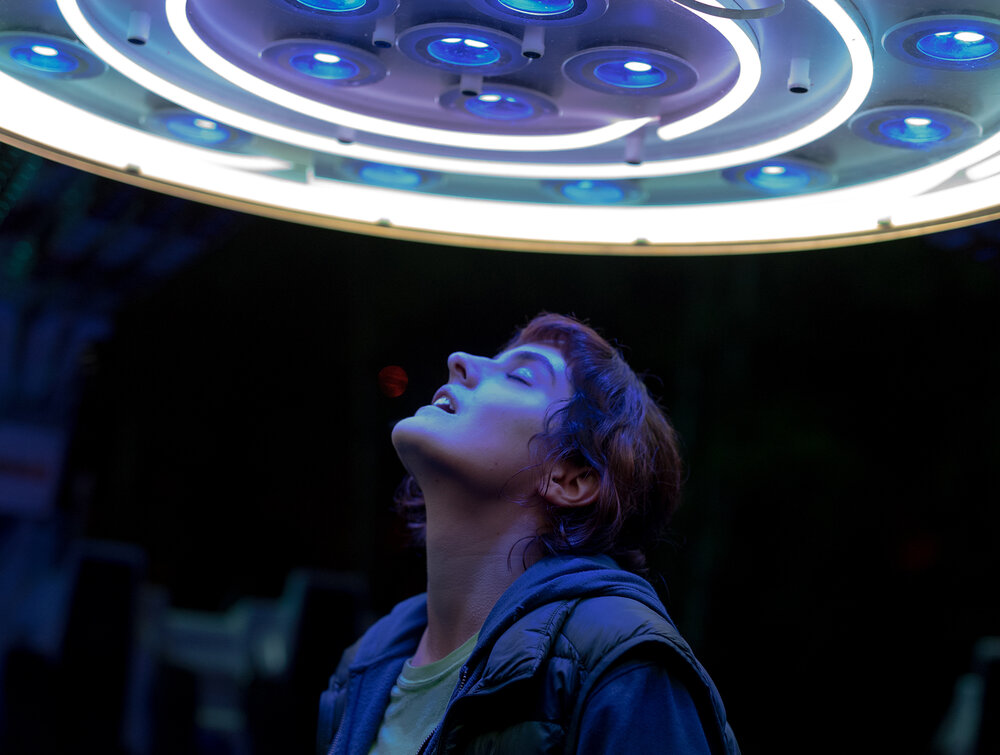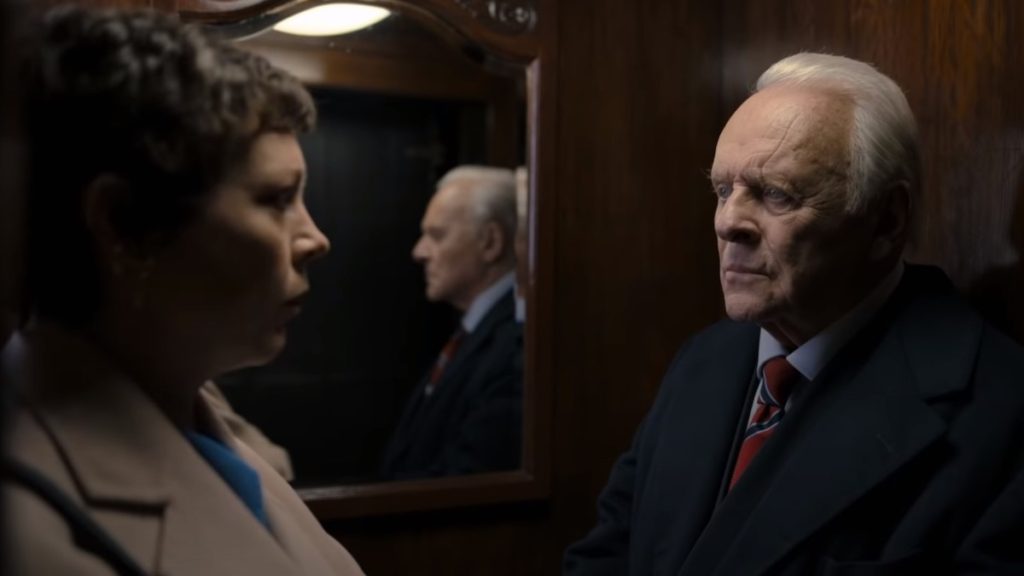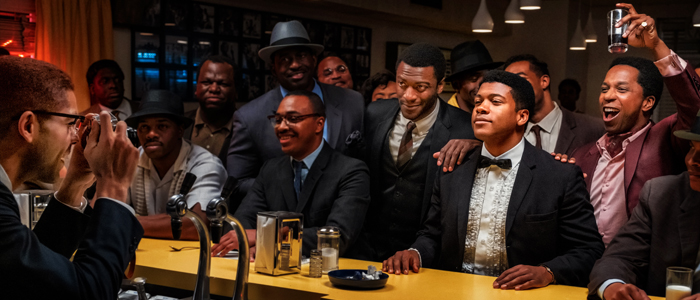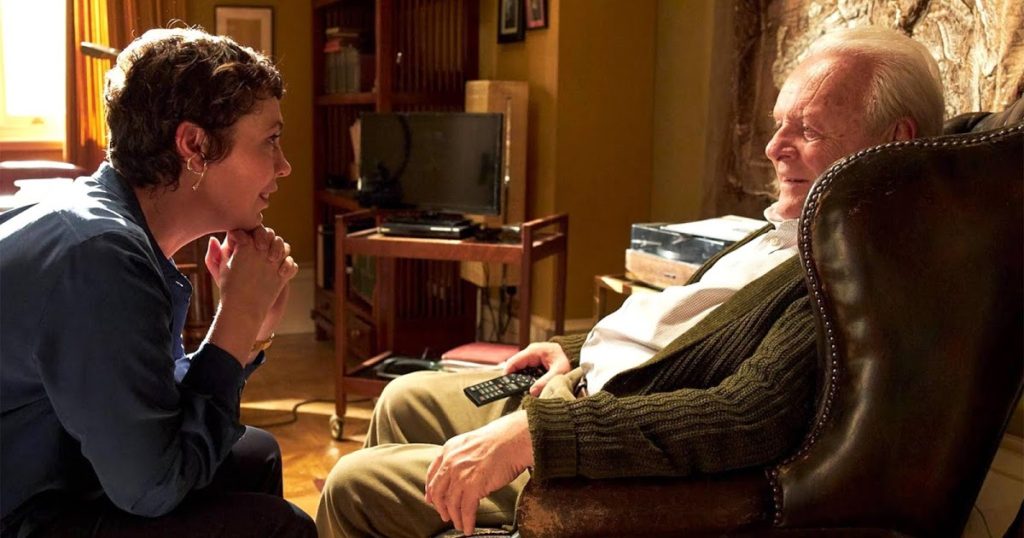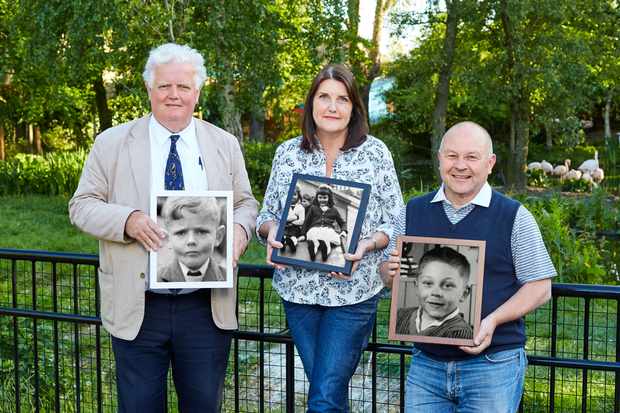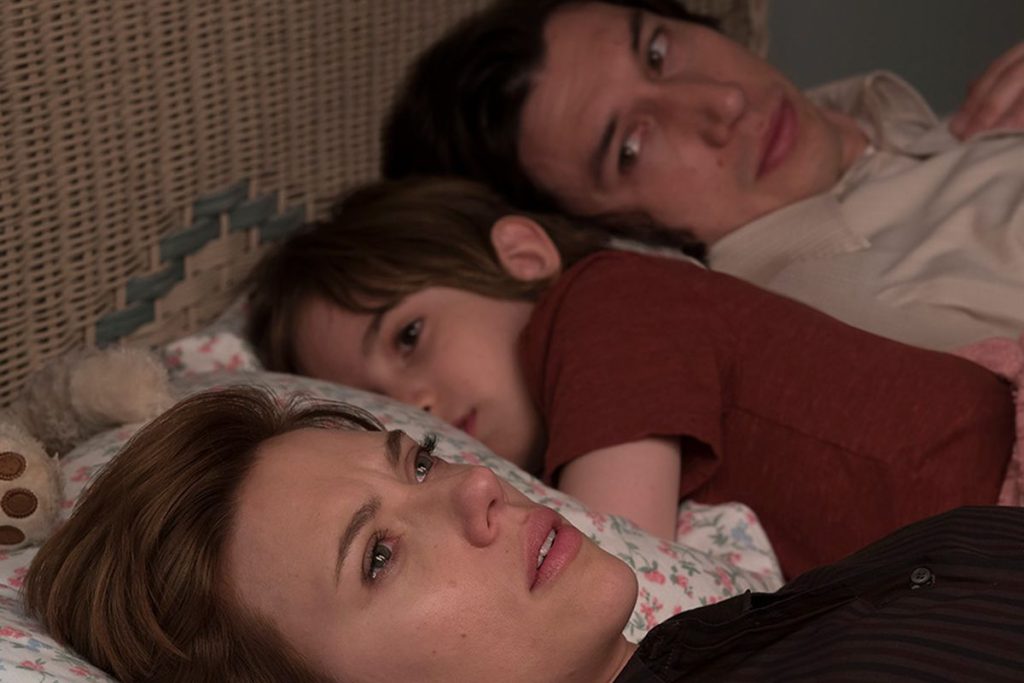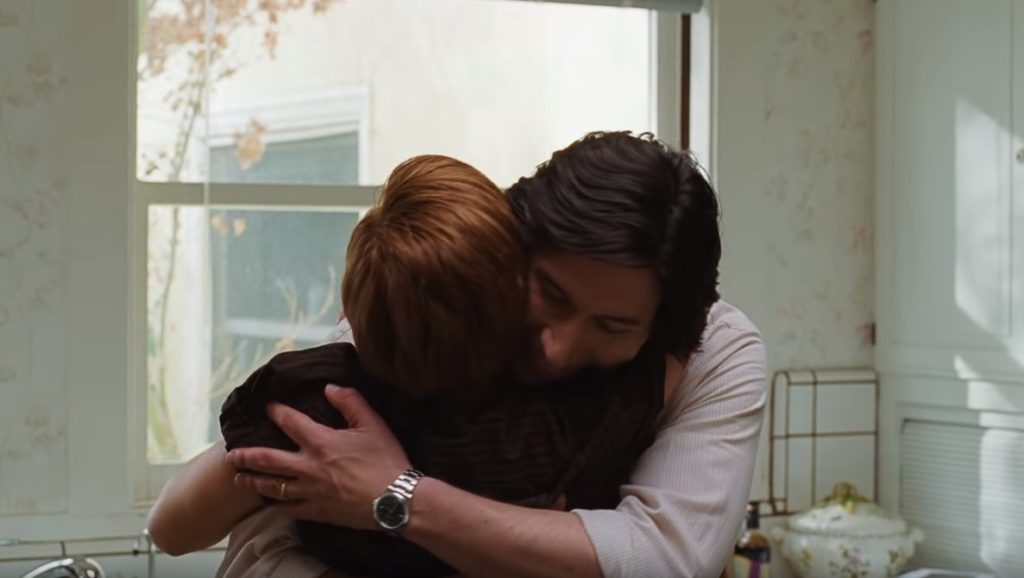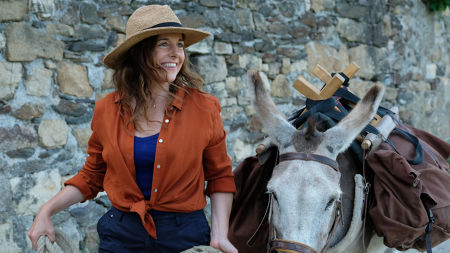
In the intriguingly titled French comedy My Donkey, My Lover & I, Antoinette (Laure Calamy) is a vivacious and goofy schoolteacher in a French provincial town. She’s single, but she’s head over heels into a fling with a married man. She’s excited that’s he’s taking her away to a resort at the upcoming school holiday, but – at the very last minute – he instead submits to a mountain hiking trip with his family.
Antoinette’s distraught and angry disappointment soon transforms into determination and lunacy – she decides to go to the same network of mountain trails, rent a donkey and encounter him in the mountains.
Here’s what I didn’t know before I stumbled on this film at the Mill Valley Film Festival. In 1879, a lovelorn Robert Louis Stevenson, with only a donkey companion, took a solitary hike in Southern France and penned his travel memoir Travels with a Donkey in the Cévennes. It’s common for today’s French to spend a week of their vacations re-creating Stevenson’s experience. It’s a thing, and it’s spawned a cottage industry of donkey rentals and mountain hostels.
Antoinette can be an over-sharer, and when she blurts her mission to another hiker, it goes viral, and soon everyone else in the mountains knows. Having prepared for a lie-by-the-pool vacation, she is ill-equipped, especially in the footwear department, to trudge over mountains,. And, of course, she gets the very most uncooperative donkey. How is she going to find her lover – and, if she does, what is she going to do with him?
Laure Calamy is a brilliant comic actress (and one of the highlights of last summer’s Sibyl). She knows that the key to comedy is for an actor to be absolutely committed (with no hint of winking at the audience) to an absurd course of action. This is why Buster Keaton, Lucille Ball and Gene Wilder were performance geniuses. And it is why Will Ferrell isn’t as funny as Bill Hader or Kristen Wiig.
In My Lover, My Donkey & I, Calamy is all in on Antoinette, a woman who can be both alarmingly unself-conscious and cringingly self-conscious, and both pathetic and empowered. Antoinette endures indignity after indignity, but Calamy’s radiance shines through.
The premise of this film seems utterly unbelievable, but the story is based on actual events which are well-known in France, hence the French title Antoinette dans les Cévennes.
My Lover, My Donkey & I may not be Annie Hall or even There’s Something About Mary, but there are worse ways to spend 97 minutes than with the delightful Laure Calamy. It’s opening July 22, including in the Bay Area at the Opera Plaza and the Rafael.

